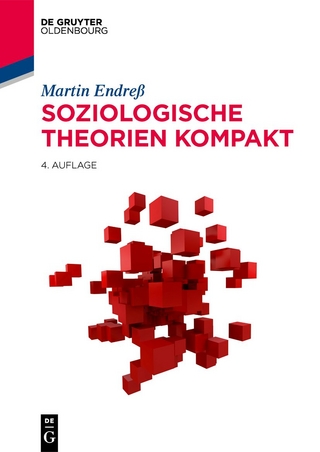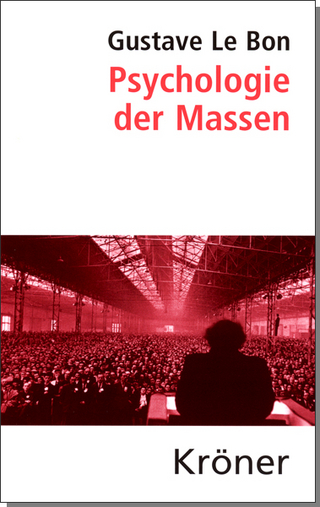
Existentialism and its relevance to the contemporary system of education in India: Existentialism and present educational scenario
Anchor Academic Publishing (Verlag)
978-3-95489-277-8 (ISBN)
The book put forward is the beginning of an attempt to revive existentialism by addressing these issues. The idea is eventually to present a conception of personhood that is recognizably existentialist, or similar to that presented by writers like Kierkegaard, Heidegger, Jaspers, and Sartre in certain fundamental ways, but that takes into account the last twenty years of developments in the many different areas of philosophy that directly affect our understanding of what it is to be a person. The result will hopefully be a more sophisticated existentialist theory of personhood that can be presented in contemporary terms as a serious challenge to current dogmas in metaphysics and moral theory, and be defended against the ascendant naturalistic, rationalistic, or pragmatist alternatives.
Dr. Rukhsana Akhter was born in Srinagar City, She pursued her M.A., M.Ed and M.Phil degree from University of Kashmir. She also received her Doctorate Degree from the same University. Dr. Rukhsana has more than 20 research papers to her credit published at national and international levels. She was associated with major research projects sponsored by U.G.C. and MHRD New Delhi. She also attended a number of seminars workshops and conferences and has delivered a number of extension lecturers in various training colleges of the valley. Besides teaching she is resource person to a number of educational institutions. Presently, she is working as Assistant Professor in the Department of Education in Government College of Education, Srinagar, J&K, India.
Textprobe:
CHAPTER 5, EDUCATIONAL IMPLICATIONS OF EXISTENTIALISM:
The cognitive understanding of truth follows various ways and means. At the idealistic stage of philosophy, 'intuition' was being used, by which the learner got a subjective knowledge of reality. Since the dawn of scientific means of enquiry, the tendency diverted towards objective knowledge of all the phenomenon of the world. The objective knowledge does not count the feelings and experiences of the learner, away from subjective consciousness. Contrary to objective knowledge, existentialist knowledge is intuitive. Existentialists consider science as a tool, not determinant and experimentalism as a method, not a goal. A whole new understanding of the 'truth' is going to be called for understanding whereby the learner's feeling towards truth comes to play as significant a role as his mere cognitive understanding of it. For anything to be true, it must first pass into and be taken hold of by some subjective consciousness. Knowledge becomes knowledge only when subjectivity takes hold of it and puts it into his own life. The validity of knowledge is determined by ist value to the individual. There are no norms; the individual is responsible for his own knowledge.
Soren Kierkegaard wants people free from the illusion of objectivity. Kierkegaard says that we should destroy scientific myth. This myth not only dominates our thought, but is actually to be welcomed by us as enlightenment and progress. He says that we have lost the capacity for subjectivity, and it is the task of philosophy to rediscover it for us. He says, A complete true account of the behaviour of everything could be provided, if we took trouble and observe enough .
Kierkegaard presents three characteristics of subjective knowledge. First, it is personal and cannot be passed from one person to the next, nor added to by different researchers. It is gained through experience and cannot be taught in the classroom. Second, subjective knowledge has a nature of paradox. It may be considered as identical to faith because faith is an emotional attribute and it can induce us to accept paradox. Third, subjective knowledge is concrete, not abstract. This is because it must necessarily be related to the actual concrete existence of a living individual.
Nietzsche appears to have epistemology firmly to moral practice and to have consequently asserted the ultimate equality of moral system. He never engages in a comparison of moral practice and treated as equal to Western, Buddhist and Hindu moral system. For him, atheism is the final fruit of the ascetic ideal. The ascetic ideals entail a conviction in truth as moral. Hence everything which is untrue must be immoral.
Nietzsche favours the scientific prospect and says that we accept those things which are useful to us. Human beings, as well as all the insects respond to the nature, ist colour, smell and other things, differ because various things have different acceptability to them. People know that there is no absolute truth, which would be true for all time, and therefore they have canonized some of their myths and prejudices and named them truth. Nietzsche s views are similar to pragmatists who believe that truth is a process of establishing things. He says that truth is not something which is presented but it has to be created. It is merely a word for will to power. Nietzsche recognizes that some scientific fictions have become so useful that they are positively necessary to life. For example, the law of causation has been so totally built into human thought that not to believe in it would mean the ruin of our kind. It became the habit of humanity as a whole. But the will to truth is the will to power, hence, despite the strength of this habit, the process of questioning and making of hypothesis will in fact continue. This process of questioning is justified and encouraged by the philosophers. For the philosopher, a belief may be necessary condition of li
| Erscheint lt. Verlag | 5.6.2014 |
|---|---|
| Sprache | englisch |
| Maße | 155 x 220 mm |
| Gewicht | 350 g |
| Themenwelt | Sozialwissenschaften ► Soziologie ► Allgemeine Soziologie |
| ISBN-10 | 3-95489-277-4 / 3954892774 |
| ISBN-13 | 978-3-95489-277-8 / 9783954892778 |
| Zustand | Neuware |
| Haben Sie eine Frage zum Produkt? |
aus dem Bereich


